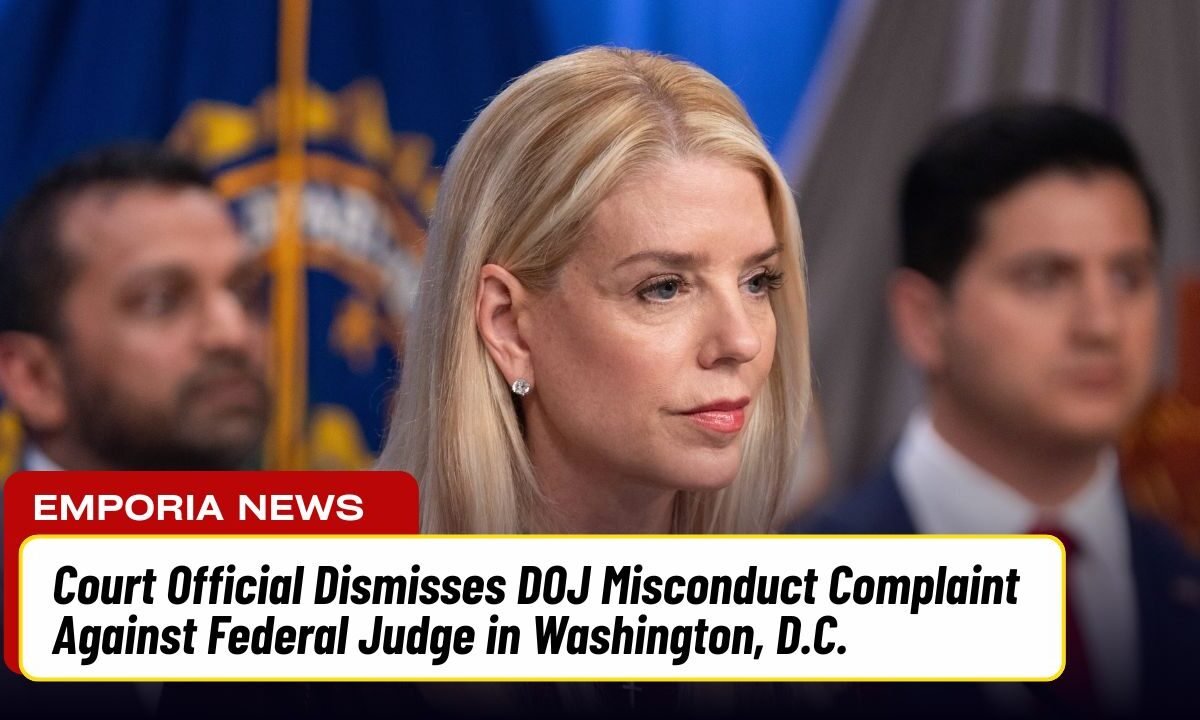A high-profile dispute involving the Justice Department (DOJ) and a federal judge overseeing litigation against President Donald Trump’s ban on transgender military service has taken a significant turn.
senior court official has rejected the misconduct allegations against the judge, concluding that the DOJ pursued the wrong method to challenge her conduct.
DOJ Misconduct Complaint Ruled Invalid
Allegations Against Judge Ana Reyes
The complaint – originally filed by Chad Mizelle, former chief of staff to Attorney General Pam Bondi – accused U.S. District Judge Ana Reyes of engaging in “hostile and egregious” behavior during a February hearing. Mizelle claimed the judge questioned a government lawyer’s religious beliefs and attempted to embarrass him through a rhetorical example.
Chief Judge’s Decision
In a September 29 order, later released publicly, Chief Judge Sri Srinivasan of the D.C. Circuit dismissed the complaint. He noted that if the DOJ believed Judge Reyes was biased, the proper avenue would have been to file a motion for recusal, not a misconduct complaint.
Srinivasan wrote that concerns about judicial neutrality should be handled through established case procedures and not through external disciplinary actions.
Key Issues Raised in the Complaint
Religious Questioning Incident
During the hearing, Judge Reyes reportedly asked a DOJ attorney:
“What do you think Jesus would say to telling a group of people they are so worthless that we won’t let them into homeless shelters?”
The lawyer declined to speculate on religious views, responding that “The United States is not going to speculate about what Jesus would have to say.”
Rhetorical Exercise on Discrimination
The complaint also referenced an example Reyes used to illustrate discriminatory behavior. She imagined a hypothetical scenario where she barred University of Virginia law graduates—including the government attorney—from appearing in her courtroom, calling them “liars” lacking integrity.
She asked the lawyer to sit down before recalling him, an action Mizelle said undermined the dignity of the proceedings.
Context of the Transgender Military Ban Lawsuit
Background of Trump’s Executive Order
Trump’s January 27 executive order argued, without evidence, that the presence of transgender service members conflicts with military values and weakens readiness. The order required Defense Secretary Pete Hegseth to create new restrictions based on those claims.
Legal Challenge by Transgender Plaintiffs
The lawsuit was filed by six transgender active-duty service members and two individuals who wished to enlist. Judge Reyes ruled in March that the policy likely violated their constitutional rights, and she temporarily blocked its enforcement. A judge in Washington state issued a similar ruling.
Although Reyes later paused her injunction while the matter is under appeal, the Supreme Court has allowed the administration to move forward with enforcing the ban during the ongoing legal battle.
Political Tensions Surrounding the Judiciary
Judge Reyes, appointed by President Joe Biden, is one of several judges facing intensified criticism from Trump and his supporters throughout his second term. The dispute reflects a broader clash between the administration and the federal judiciary over politically charged issues.
The Justice Department declined to publicly comment on the dismissal, and Judge Reyes also refrained from addressing the ruling or the allegations directly.
The dismissal of the DOJ’s misconduct complaint marks a crucial development in the legal fight over the transgender military ban.
Chief Judge Srinivasan’s ruling underscores that challenges to judicial conduct must follow established courtroom procedures—such as recusal motions—rather than external complaints.
As the case proceeds through appeals and political pressures remain intense, the future of the transgender military policy continues to rest in the hands of the courts.




